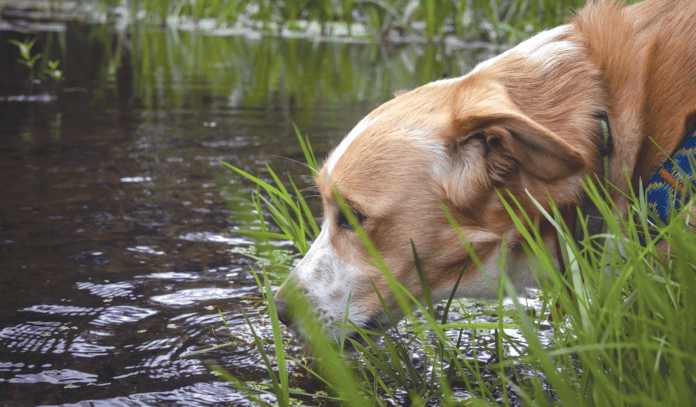In recent years, there appears to have been a global jump in dogs with leptospirosis, a life-threatening bacterial disease that affects the liver and kidneys. Geographic locales in which the offending bacteria tend to thrive include warm, moist environments. Think: stagnant puddles of water and ponds, including vernal ponds. They can be found in many parts of the country in different seasons of the year, depending on location. The bacteria like to multiply in mud, too. And they thrive in animal urine, including the urine of raccoons, skunks, rats, and other rodents. If you live around wildlife and your dog likes to sniff, he can end up infected — during any month.
At our own Foster Hospital for Small Animals at Tufts, “lepto cases account for fully half of all the dogs we put on dialysis,” says veterinarian Mary Labato, DVM. “A number of dogs with lepto go into kidney failure, and it becomes their only option.”
To make matters worse, leptospirosis can be a hard disease to diagnose. Its symptoms range from reduced appetite to vomiting, fever, severe muscle pain, shivering, and overall weakness, which means they mimic signs of a number of other illnesses. Moreover, it’s a zoonotic disease, meaning it can jump from dogs to people — and other dogs in the household, as well as cats. You may think there’s no possible way you would ever touch your dog’s urine. But when picking up your dog’s waste, while gardening, or as you lift him into your arms from his bottom, you can potentially come into contact with the offending bacteria that are shed when your pet voids. If your dog gives the disease to your cat, the litterbox becomes a breeding ground for leptospira.
$35 worth of prevention is worth more than $10,000 of cure
No matter where you live, it’s worth having a discussion with your dog’s vet about whether he should get an annual vaccination against leptospirosis, which in some locales costs as little as $20. It may not come up automatically during wellness exams since it’s not considered a core vaccine by the American Animal Hospital Association. And it only protects against four types of lepto bacteria, even though there are some 15 kinds that can spell trouble for dogs. Still, the ones most likely to cause illness are the ones targeted by the vaccine, so getting the shot dramatically decreases the odds that a dog will come down with the disease.
Bottom line: If your vet thinks a lepto shot for your dog is a good idea, don’t hesitate. There’s little downside to protecting your dog — and others in your household, including you — with an annual vaccine against this potentially devastating illness.






All dog lovers: please heed this Leptospirosis warning. I wish I had known because I would have vaccinated my dog. My veterinarian did not discuss the L4 vaccine with me. Tragically, my beloved dog died of kidney failure secondary to Leptospirosis on November 1, 2021, after six dialysis treatments and a blood transfusion.